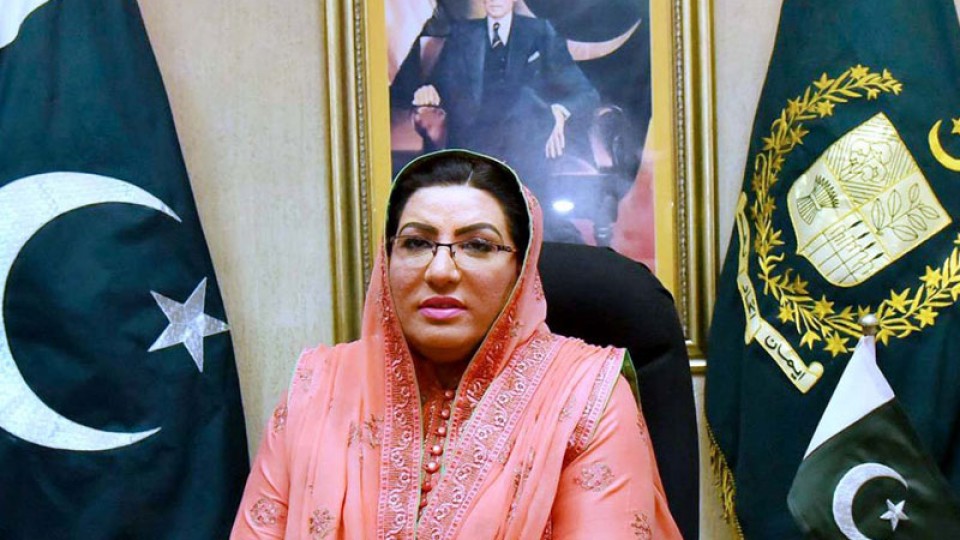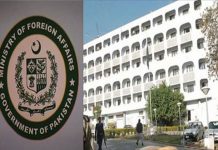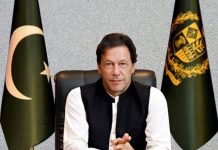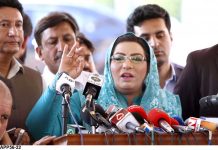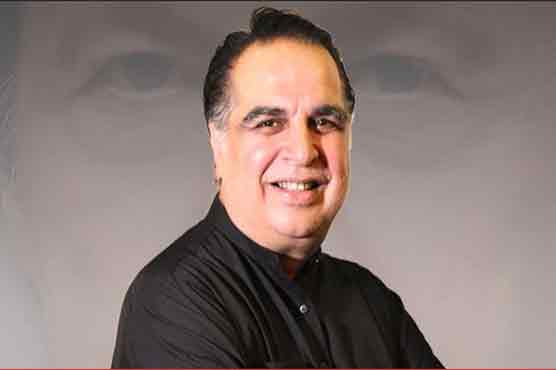مضمون کا ماخذ : لاٹری جیتنے کی حکمت عملی
Pakistan also desires peace with India: PM
Prime Minister Imran Khan has asked his Indian counterpart Narendra Modi to create an ‘enabling environment’ in order to hold a ‘constructive and result-oriented dialogue’ between the two countries. In a letter, Prime Minister Imran Khan responded to his Indian counterpart Narendra Modi’s Pakistan Day message, telling him that the Pakistani people ‘also desire peaceful, […]
Prime Minister Imran Khan has asked his Indian counterpart Narendra Modi to create an ‘enabling environment’ in order to hold a ‘constructive and result-oriented dialogue’ between the two countries.
In a letter, Prime Minister Imran Khan responded to his Indian counterpart Narendra Modi’s Pakistan Day message, telling him that the Pakistani people ‘also desire peaceful, cooperative relations with all neighbours, including India’.
The premier wrote the letter to the Indian leader a week after Modi told Imran in a message that his country, being a neighbour, desires cordial relations with the Pakistani people.
“I thank you for your letter conveying greetings on Pakistan Day. The people of Pakistan commemorate this Day by paying tribute to the wisdom and foresight of our founding fathers in envisioning an independent, sovereign state where they could live in freedom and realise their full potential,” Imran Khan said in his letter, dated March 29. Responding to Modi’s desire for cordial relations, Imran Khan said, “The people of Pakistan also desire peaceful, cooperative relations with all neighbours, including India.”
The prime minister said Pakistan is convinced that durable peace and stability in South Asia is contingent upon resolving all outstanding issues between India and Pakistan. “We are convinced that durable peace and stability in South Asia is contingent upon resolving all outstanding issues between India and Pakistan, in particular, the Jammu & Kashmir dispute,” he maintained. “Creation of an enabling environment is imperative for a constructive and result-oriented dialogue,” he emphasised.
In his letter, the premier also conveyed best wishes for the Indian people in the fight against the Covid-19 pandemic. “Please accept, Excellency, the assurances of my highest consideration,” he concluded.
Prime Minister Modi in his letter had stated that “an environment of trust, devoid of terror and hostility” was imperative for friendly relations between the two countries. The Indian premier had also conveyed wishes to Imran and the Pakistani people for dealing with the challenges of the coronavirus pandemic, terming it a “difficult time for humanity”.
The perpetually tense relations between the two countries, which have fought three wars, besides engaging in several episodes of limited conflict, suffered a breakdown after India illegally annexed occupied Jammu and Kashmir on August 5, 2019. However, the two countries sprung a surprise last month by announcing the resumption of ceasefire at the Line of Control (LoC) after a ‘hotline contact’ between the directors general of military operations of the two countries. No violation has since then been reported at the LoC and importantly there has been a visible reduction in rhetoric from both sides.
In his speech at the Islamabad dialogue, Prime Minister Imran said the Kashmir issue was the lone irritant standing in the way of better relations between Pakistan and India. While addressing the same event, Army Chief Gen Qamar Javed Bajwa too stressed the need to resolve the Kashmir dispute through peaceful means, saying: “We feel it is time to bury the past and move forward.”
The ‘olive branch’ by India had been extended a day after reports emerged that Pakistan and India had begun to work on a four-step ‘roadmap for peace’ facilitated by the United Arab Emirates. A report by Bloomberg had claimed that the surprise joint statement announced by the Directors General of Military Operations (DGMOs) of the two countries on February 25, that agreed to end cross LoC ceasefire violations (CFVs), was the outcome of talks ‘brokered’ by the UAE months earlier and that the visit of UAE Foreign Minister Sheikh Abdullah bin Zayed to New Delhi on February 26 also discussed progress in the India-Pakistan peace process with External Affairs Minister S Jaishankar.
After the ceasefire, the UAE was one of a handful of countries to issue a statement welcoming the ceasefire announcement, highlighting the ‘close historical ties’ it has with both India and Pakistan and hailing “the efforts made by both countries to come to this agreement.”

